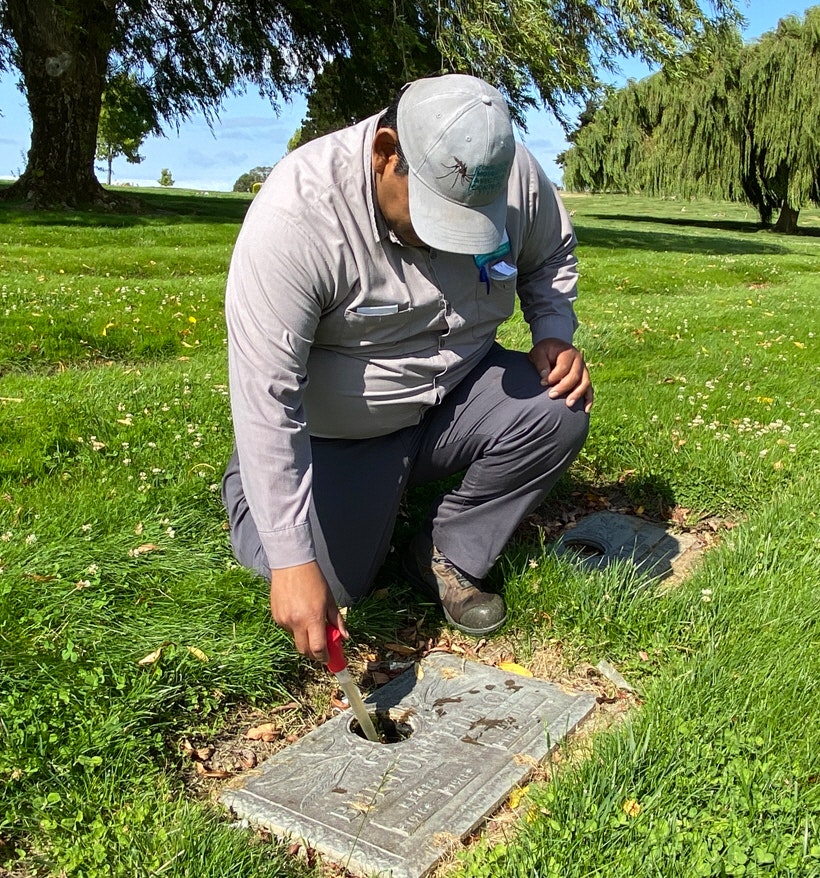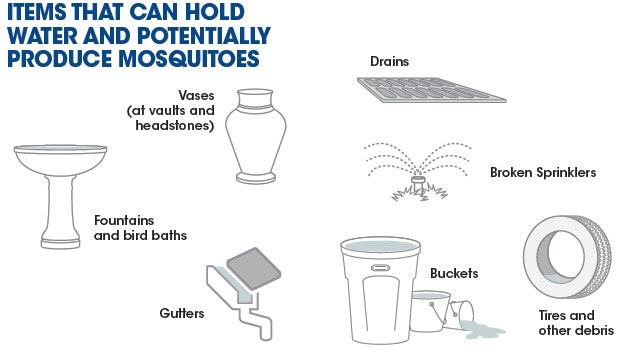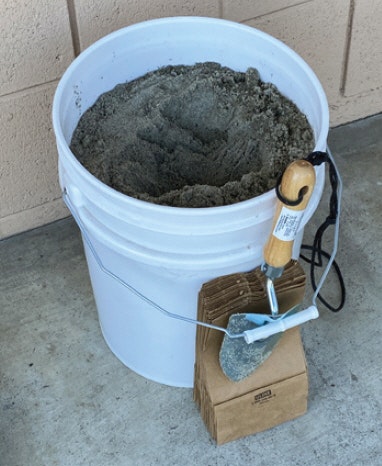Mosquitoes and Cemeteries

Cemeteries can be a significant source of mosquitoes in a community. Anything that can hold just a tablespoon of water can be a source of mosquitoes, such as vases, vaults, uneven ground areas in lawns, flower pot saucers, birdbaths, clogged rain gutters, and more. Cemetery workers must maintain, manage, or eliminate all types of standing water regularly on cemetery grounds and buildings and educate visitors about the importance of ensuring no standing water is present at cemeteries.
The Contra Costa Mosquito and Vector Control District is working with cemetery managers and employees across Contra Costa County to reduce the risk of mosquitoes and vector-borne disease at cemeteries. District employees have found mosquitoes being produced at cemeteries, including those that can transmit West Nile virus. As a public health agency, our mission is to protect the community from mosquitoes and other vectors of disease. Protecting public health includes working to reduce the risk of mosquitoes at cemeteries.
While it's important for cemetery personnel to take steps to reduce the risk of mosquitoes, it's equally important for cemetery visitors to be aware of the simple things they can do to prevent mosquitoes at cemeteries.

Avoid leaving anything on a grave that can hold any amount of water at a cemetery.
Water at cemeteries can come from many sources including rain, sprinklers, and items visitors bring. Cemetery employees have found visitors have left behind flower vases as well as cups, glasses, cans, bottles, and other items that can hold water and produce mosquitoes. Cans and bottles left at a grave can collect water and produce mosquitoes.
Brochure about Cemeteries and Mosquitoes

Some local cemeteries only allow visitors to bring flowers to leave on the tombstone without water. Other local cemeteries now provide sand to place in vases instead of water to prevent mosquitoes. If you bring flowers to your loved one's grave and find sand in the existing vase, do not dump it out. Sand is a good alternative to water in cemetery vases because it does not produce mosquitoes but can still hold flowers in place. Never dump out sand that has been placed in a cemetery vase. Place flowers in the sand and they will not only look nice, they won't produce mosquitoes.
Bringing vases or other containers from outside of Contra Costa County to a cemetery within the county can increase the risk of bringing invasive, non-native mosquitoes into our community, increasing the risk of other mosquito-borne diseases including Zika and dengue fever.
